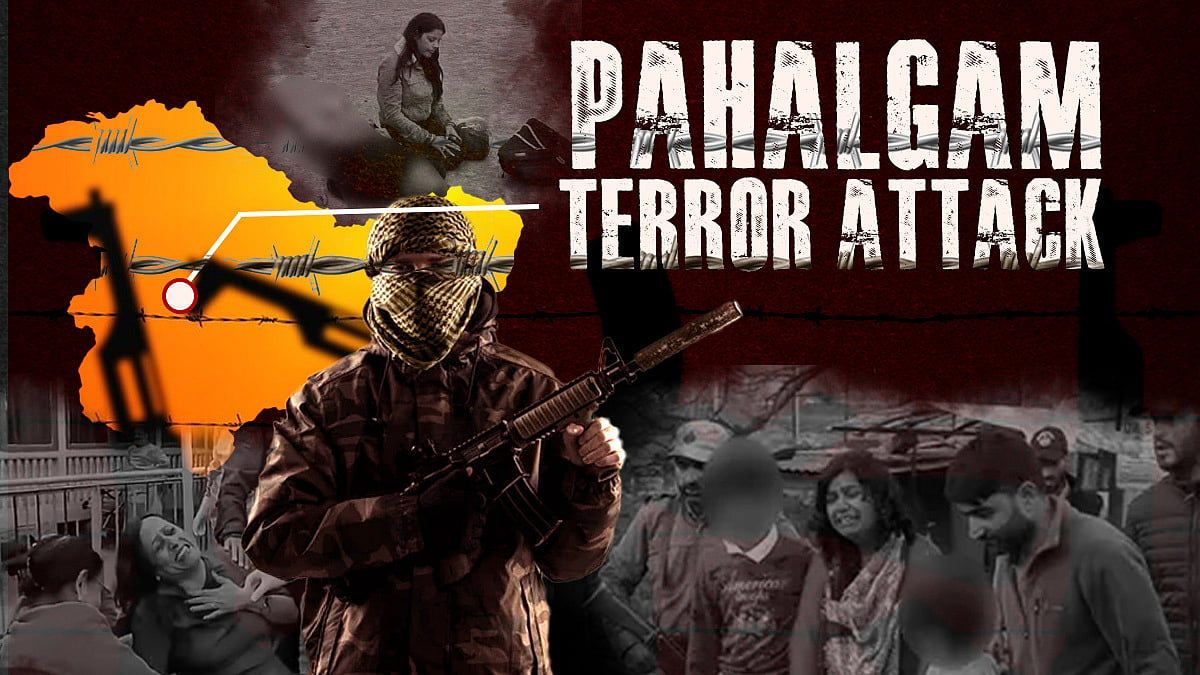Veteran journalist Mohammad Sayeed Malik reflects on the impact of the Pahalgam attack | File Photo
In an exclusive conversation with Free Press Journal, Executive Editor Afrida Rahman Ali spoke to Mohammad Sayeed Malik, veteran journalist and a highly respected voice on Kashmir affairs. Malik, who has spent decades reporting and shaping public understanding on Jammu and Kashmir, shared his deep anguish over the recent Pahalgam terror attack.
Speaking from Srinagar, Malik discussed the profound emotional impact on Kashmiris, the shift in public sentiment away from Pakistan-backed groups, and the need to rebuild trust and democratic institutions for lasting peace.In Conversation:
Afrida Rahman Ali: Mr. Malik, you have witnessed many tragedies in Kashmir over the decades. How did the Pahalgam attack affect you personally?
Mohammad Sayeed Malik: This attack shook me like few others before. I have covered bomb blasts and conflicts, but watching a newlywed weep beside her murdered husband was heart-wrenching. It shook the very soul of Kashmiris — cutting beyond politics and touching raw humanity.
Afrida Rahman Ali: You said the Kashmiri people’s reaction was spontaneous, not politically driven. Could you elaborate?
Mohammad Sayeed Malik: Yes, it was purely instinctive. No political party led it. It was the common Kashmiri — young, old, rich, poor — reacting with genuine grief. It reflected their humanitarian spirit, not any calculated move.
Afrida Rahman Ali: Some analysts suggest that militants target civilians to provoke communal tensions. Do you believe that?
Mohammad Sayeed Malik: Absolutely. The pattern is clear. Earlier attacks were on security forces; now civilians are targeted to ignite Hindu-Muslim divisions. It suits certain forces to keep India communalized and divided.
Afrida Rahman Ali: Is there now a visible disconnect between ordinary Kashmiris and Pakistan-backed terror groups?
Mohammad Sayeed Malik: Very much so. Kashmiris are fed up with being used. The trust deficit with Pakistan-backed elements is deeper than ever. People realize their future lies with India, not with external forces.
Afrida Rahman Ali: Do you see greater collaboration between civilians and security forces after this tragedy?
Mohammad Sayeed Malik: There has to be. Historically too, during crises like in 1947 and 1965, local people were the first to alert and aid Indian forces. Without local civilian cooperation, security efforts remain incomplete.
Afrida Rahman Ali: You stressed the urgency of restoring statehood. Why is it critical at this juncture?
Mohammad Sayeed Malik: Statehood is about empowerment and accountability. An elected government can connect better with the people and complement security operations. It’s vital for healing the alienation that many feel today.
Afrida Rahman Ali: What should be the biggest takeaway for authorities from the Pahalgam incident?
Mohammad Sayeed Malik: Never lower your guard. Intelligence gathering through local networks must be strengthened. And more than anything, we must uphold our humanity — not allow hatred to consume our society.
Closing Line: As Kashmir navigates yet another painful chapter, Mohammad Sayeed Malik’s words remind us of the urgent need to blend security with empathy, and politics with humanity.
